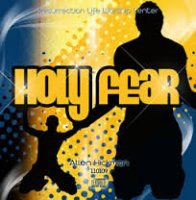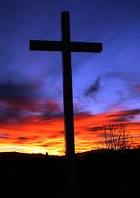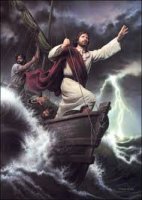|
BACKGROUND
DAVID - Easton's Bible Dictionary
DAVID, CITY OF - Easton's Bible Dictionary
DAVID - The new Bible Dictionary
JERUSALEM - Easton's Bible Dictionary
JERUSALEM. - The new Bible Dictionary
The
full background to this teaching is available online at this link
Full Background Information on David's Tabernacle here
|
Online links to scriptures (New International Version [NIV] unless otherwise stated) are shown in blue
| THE LORD IS TO BE FEARED! |
|
 8 Then David was angry because the LORD’s wrath had broken out against Uzzah, and to this day that place is called Perez Uzzah. 9 David was afraid of the LORD that day and said, “How can the ark of the LORD ever come to me?” (2 Samuel 6:8-9)
|
| DEFINITION OF 'HOLY FEAR' (New Bible Dictionary) |
|
 "This comes from the believer’s apprehension of the living God. According to Luther, the natural man cannot fear God perfectly; according to Rudolf Otto, he is ‘quite unable even to shudder grauen) or feel horror in the real sense of the word’. Holy fear, on the other hand, is God-given, enabling men to reverence God’s authority, obey his commandments and hate and shun all form of evil (Je. 32:40; cf. Gn. 22:12; Heb. 5:7). It is, moreover, the beginning (or principle) of wisdom (Ps. 111:10); the secret of uprightness (Pr. 8:13); a feature of the people in whom God delights (Ps. 147:11); and the whole duty of man (Ec. 12:13). It is also one of the divine qualifications of the Messiah (Is. 11:2-3).
In the OT, largely because of the law’s legal sanctions, true religion is often regarded as synonymous with the fear of God (cf. Je. 2:19; Ps. 34:11, Moffatt), and even in NT times the term ‘walking in the fear of the Lord’ was used in connection with the early Christians. Gentile adherents of the synagogue were called ‘God-fearers’ (Acts 10:2, etc.; cf. Phil. 2:12).
In the NT generally, however, emphasis is laid on God as loving and forgiving, the One who through Christ gives to men the spirit of sonship (Rom. 8:15), and enables them boldly to face up to life (2 Tim. 1:6-7) and death (Heb. 2:15) without fear. Nevertheless, a reverent fear remains; for the awesomeness of God has not changed, and there is a day of judgment to be met (2 Cor. 5:10f.). Godly fear stimulates the believer to seek holiness (2 Cor. 7:1), and is reflected in his attitude towards his fellow-Christians (Eph. 5:21)."
The New Bible Dictionary, (Wheaton, Illinois: Tyndale House Publishers, Inc.) 1962.
King David reacted to the death of Uzzah in the predictable human way! "God, I am doing this good thing for you and this is how you treat me!" He could not immediately understand what he had done wrong and reacted in the fashion most of us would! Anger is a very human emotion, and not as far below the surface as we would like to think, when we are provoked.
David's anger turned into fear as he started to realise the full extent of what the Lord had done. Would he be next - or his people? Then, realising his disobedience and seeing the difficult situation he was now in, he decided he needed time to think things over.
|
| THE PROBLEM |
|
 In these days of the 'Age of Grace', which emphasise God's love for us, we all too often forget that God has a balanced character, one of both love and judgement. We are now experiencing the love, but on the aptly named 'Judgement Day', we will face His judgement for the things we have - or have not - done.
2 Corinthians 5:10
|
|
|
 David experienced God's reaction in a most dramatic way. Quite justifiably, a brave warrior who slayed Goliath and many others, knew he had met his match - and was afraid! A sobering lesson for each and every one of us!
Hebrews 10:26-7,30
|
|
|
Even Jesus had a reverent fear of the Father.
Hebrews 5:7
|
| THE LESSON |
|
 As did David and Jesus, we too, are to fear the Lord. This is not the negative fear of doing nothing in case we provoke judgement, but rather, a positive motivator to put our lives right with God, now!
Through the love of Jesus in dying on the cross, our sin has been forgiven. This however is only one side of the balance. The side of the balance we hear about all the time, in this, the Age of Grace.
Proverbs 16:6
|
|
|
 The Bible tells us that if we are prepared to judge ourselves now, and make changes, we will not be subject to judgement later.
1 Corinthians 11:27-32
So, there is a call for us to change our lives to conform and perform to the will of the Father, to be holy, as reflected in Jesus through the Word as taught to us by the Holy Spirit.
|
| END TIME CHURCH TRAIT 2: A people fearing the Lord now, conforming to Christ in holiness, in order to avoid judgement later. |
|
|
| NEXT WEEK: A REVELATION OF... THE TABERNACLE OF DAVID - Part 3 |
|
 A huge problem we all face is giving up on our own ways and desires and substituting those modelled to us by Jesus.
But being prepared to submit to this process in our lives is essential for us to enter the fullness of His kingdom.
|
| A NOTE FROM DAVID |
|
 Holy fear and self judgement are two of the keys to seeing the church grow into the this end time age.
We need to have these to balance to the love message that predominates today. For our God has a rounded personality and is capable of righteous anger. Ask the people of Sodom and Gomorrah! Even ask the great man Moses, whose momentary lapse prevented him from entering the Promised Land!
Sobering thoughts - at least to me.
Jesus' Power Over the Sea
During his ministry, Jesus demonstrated his authority over the sea and its destructive power. He walked on the stormy water (Mark 6:47-50; Matt. 14:22-33; John 6:16?20). And he calmed the storms on the sea (Mark 4:35?41; Matt. 8:23?27; Luke 8:22?25).
At one point, Jesus even empowered his disciple to walk on the water (Matt. 14:28-32). Peter's cry of 'Lord, save me!' as he began to sink into the sea takes on intense meaning in light of the sea's symbolism for evil (Matt. 14:30).
When Jesus demonstrated power over the sea, the disciples' reaction was profound. They were both amazed (Matt. 14:33; Mark 6:51) and terrified (Mark 4:41) of Jesus? power. They recognized that his power was more than just authority over the elements of nature. Several Old Testament heroes had controlled nature; for example, at Elijah's word, it did not rain for years (1 Kings 17:1). And James suggested that such feats might be possible for all righteous people (James 5:15?18). But only God controlled the Abyss.
The stilling of the storm produced not only awe at the power of God within Jesus, but also the realization that he was God. Then those who were in the boat worshiped him, saying, Truly you are the Son of God?? (Matt. 14:33).
Source: http://www.followtherabbi.com
|
So until next week.......
MAY GOD BLESS YOU AND YOU BLESS GOD!
His servant and yours

Learn more about us at...
www.wwj.org.nz/about.php
|
A DAVID'S DOODLING
7. The foolish man rejects God, the wise man respects God, but the godly man lives for his God.
David Tait
|
Check
out the WWJ website for….
More David's Doodlings: www.wwj.org.nz/dd.php
What We're All About: http://www.wwj.org.nz/about.php
PGIM! Weekly Encouragement Ezine�: http://www.wwj.org.nz/wwword.php
Reports on past Ministry visits: http://www.wwj.org.nz/diary.php
Eagles Fly High!: http://www.wwj.org.nz/eagle.php
|










